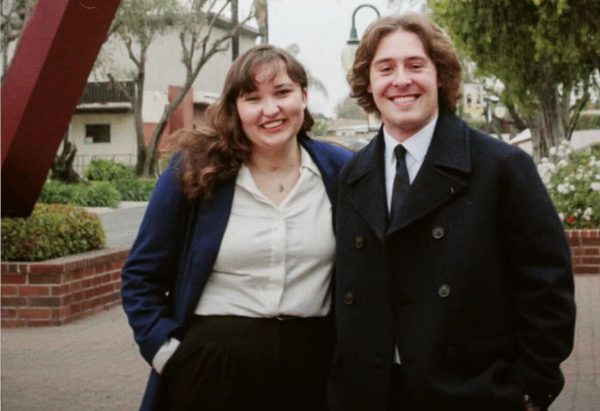Over 250 students incur new chapel policy fine
Spiritual retreat held for students to reduce $375 fine according to the new chapel policy.
February 27, 2012
A one-day spiritual retreat for students who did not complete the chapel requirement last semester will be taking place at Concordia University on Saturday, March 10, in accordance with the chapel policy instituted last September.
Approximately 20 out of 253 fined students are registered for the retreat as of Feb. 13, according to Jonathan Wyatt, chapel accountability coordinator. Students were notified via email on Friday, Feb. 3 of the charge to their accounts, while a total of 1,650 students had to complete makeups.
Retreat offers refund
Students who attend the retreat will be refunded $125 of the $375 chapel fine, and while most of the fees will likely go toward chapel speakers and other chapel-related events, Lisa Ishihara, director of Chapel Programs, said in a Feb. 21 email that the exact amount of fines will be difficult to pinpoint.
“A number of the students who didn’t complete the requirement, did so because they are not returning or re-enrolling at Biola University for a variety of reasons,” Ishihara said in the email. “Therefore, we do not know how many students will actually be charged the fine in the end so we don’t have [the final] number at this time.”
Challenge to working students
Though the new policy is intended to help students grow spiritually, sophomore Katherine Key thinks it might inadvertently have more of a detrimental effect.
Key, who is majoring in English, worked almost 45 hours a week while taking 18 units last semester and received a 10-chapel reduction. Key said she thought she had completed the requirement of physically attending 15 chapels but found she was one short when she did her makeups. Shortly after spring semester began, she received the email notifying her of the fine.
“I kind of feel like if it comes down to money, what is [the new policy] really accomplishing?” Key said. “Three hundred and seventy-five dollars is not really that small of a number. That’s a lot of money, especially to a college student.”
Controversial among students
The policy, which is comparatively lenient to other schools’ policies, has been controversial among students ever since the change was announced last fall.
“I’m not a fan,” sophomore Tommy Connolly said. “The registration hold was a big enough incentive to go to chapel.”
Junior Kelly McNeill, an intercultural studies major, thought that the fine was easier than being limited to only 12 units the semester following chapel probation.
“I think when you’re restricted to 12 units, especially for people who are trying to graduate within a certain amount of time, that seriously limits what they can do,” McNeill said.
Key, who pays her own tuition, said that she is already actively involved with her church community and will likely not attend the retreat because it would cause her to miss a full day of work.
“I understand why it’s there for students who they want to keep accountable with their spiritual walk,” Key said. “But I also think they should be more flexible with it.”
Key disputed the fee on Friday but said she was denied.
Retreat provides break in business
“Spiritual Development at Biola aims to help people listen to what God is doing in their lives and to cooperate with it,” said Todd Pickett, the dean of Spiritual Development, in an email on Feb. 14. “Our day away will help students do exactly that, especially these students who seem to really need a retreat day if life has been so busy that they’ve been unable to attend chapel.”
New policy a necessary benefit
Although the policy change was a last resort, it was necessary, as in years past Biola has tried chapel probation, makeups and limiting units, Wyatt said.
“There have been times when we have [been more lenient], and hundreds of students leave chapels, so I think [the policy change is] a developmental presence that students can really benefit from,” Wyatt said.
While any significant change in the number of makeups and fines remains to be seen, since it is still too soon to tell how effective the new policy is, Wyatt explained it usually takes a semester for students to get used to policy changes. He predicted that there will be fewer students fined after spring semester.






